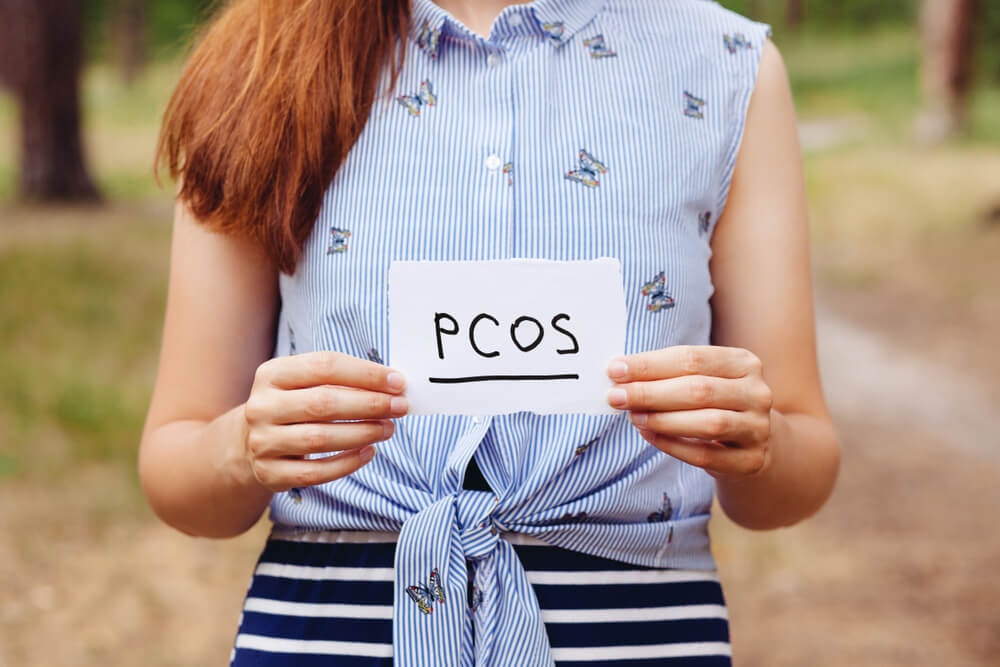Polycystic Ovary Syndrome (PCOS) is a complex hormonal disorder affecting many women, with a myriad of symptoms that extend beyond reproductive health. Many women visit different PCOS Specialists in Miami, Florida to try and find the best possible solution to this frustrating issue.
One distressing aspect is PCOS hair loss, which often goes unnoticed until it becomes a significant concern. Today you will be able to find out important information about the symptoms, but also answer the question does PCOS cause hair loss, as well as PCOS hair loss treatments. If you have any additional questions, you can always contact OB/GYN Associates of Miami and ask for professional guidance.
Understanding PCOS Hair Loss
Understanding PCOS hair loss is essential for individuals grappling with this distressing symptom. PCOS, or Polycystic Ovary Syndrome, is a hormonal disorder marked by imbalances in androgen levels, particularly dihydrotestosterone (DHT). These hormonal fluctuations disrupt the natural hair growth cycle, leading to a diffuse thinning of hair on the scalp, often most noticeable at the crown. Beyond hormonal factors, genetics, insulin resistance, and inflammation contribute to the complexity of PCOS-induced hair loss.
The link between PCOS and hair loss lies in the cascading effects of elevated androgens, triggering inflammation and insulin resistance that further exacerbate hair follicle miniaturization. Recognizing the symptoms, such as increased shedding and changes in hair density, is crucial for early intervention. By comprehending the intricate relationship between hair loss and polycystic ovary syndrome, individuals can explore effective treatment options and lifestyle modifications to address this aspect of the syndrome and restore hair health.
Symptoms of PCOS Hair Loss
Identifying PCOS-related hair loss is crucial for timely intervention. Here is a list of symptoms associated with PCOS-related hair loss:
- Diffuse PCOS Hair Thinning: PCOS-induced hair loss often manifests as a gradual and diffuse thinning of hair, particularly noticeable on the scalp’s crown.
- Increased Hair Shedding: Individuals with PCOS may experience heightened hair shedding, leading to more hair falling out during activities like brushing, combing, or washing.
- Widening of the Part: A visible widening of the part in the hair may occur as a result of decreased hair density and thinning.
- Changes in Hair Texture: The texture of the hair may undergo alterations, becoming finer or more brittle, signaling the impact of PCOS on the hair structure.
- Receding Hairline: In some cases, PCOS-related hair loss can result in a receding hairline, particularly along the frontal region of the scalp.
- Bald Patches: Severe cases of PCOS-induced hair loss may lead to the development of bald patches on the scalp, contributing to a more pronounced loss of hair.
- Excessive Hair Fall During Showering: Individuals may notice an increased amount of hair fall during showering, which can be a distressing sign of PCOS-related hair thinning.
- Increased Visibility of the Scalp: As hair density decreases, the scalp may become more visible, especially when hair is styled or parted.
- Changes in Hair Growth Cycle: PCOS disrupts the natural hair growth cycle, leading to abnormalities such as shorter anagen (growth) phases and prolonged telogen (rest) phases.
- Association with Other PCOS Symptoms: PCOS hair loss is often accompanied by other symptoms of Polycystic Ovary Syndrome, such as irregular menstrual cycles, acne, weight gain, and hormonal imbalances.
Recognizing these symptoms is crucial for early detection and intervention to effectively manage PCOS-related hair loss. If experiencing these signs, consulting with a healthcare professional for a comprehensive evaluation and personalized treatment plan is advisable
Does PCOS cause hair loss?
Yes, PCOS does cause hair loss, and understanding the intricate relationship between hair loss and Polycystic Ovary Syndrome (PCOS) is crucial for individuals navigating this challenging symptom. As mentioned multiple times, PCOS is characterized by hormonal imbalances, specifically elevated levels of androgens, so these hormonal fluctuations disrupt the natural hair growth cycle, leading to a condition known as androgenetic alopecia or female pattern hair loss.
Recognizing that PCOS causes hair loss is the first step toward effective management. Seeking guidance from healthcare professionals can help individuals explore tailored treatment options, including lifestyle modifications, medications, and nutritional interventions, to address both the hormonal imbalances and the resulting impact on hair health.
Diagnosing PCOS Hair Loss
Diagnosing PCOS-related hair loss involves a comprehensive evaluation to identify the extent and underlying causes of this distressing symptom. Healthcare professionals typically initiate the diagnostic process by conducting a thorough medical history review, paying close attention to the individual’s symptoms, lifestyle factors, and family history. Hormonal blood tests are then employed to measure and analyze levels of androgens, insulin, and other relevant hormones.
Additionally, a scalp biopsy may be recommended to assess the degree of hair follicle miniaturization and further confirm the diagnosis. The combination of these diagnostic tools enables healthcare providers to differentiate PCOS-related hair loss from other forms of alopecia and pinpoint any additional contributing factors.
Early detection is paramount in managing PCOS-induced hair thinning, allowing for timely intervention and the implementation of personalized treatment plans to address both the hormonal imbalances associated with PCOS and the resulting impact on hair health. If individuals suspect PCOS-related hair loss, seeking guidance from a healthcare professional is essential for an accurate diagnosis and effective management strategy.
PCOS Hair Loss Treatment Options
Managing PCOS-related hair loss involves a multifaceted approach addressing hormonal imbalances, inflammation, and insulin resistance. Lifestyle modifications, including a balanced diet, regular exercise, and stress management, form the foundation. Medications such as anti-androgens, minoxidil, and finasteride may be prescribed to promote hair regrowth and slow down further loss. Here are some more detailed pieces of advice:
- Lifestyle Modifications: Adopting a healthy lifestyle can positively impact PCOS-related hair loss. Regular exercise, a balanced diet, and stress management contribute to overall well-being and may help regulate hormones.
- Medications to Address Androgen Levels: Prescription medications, such as anti-androgens like spironolactone, can be used to counteract the effects of elevated androgens and promote hair regrowth.
- Topical Minoxidil: Minoxidil is an over-the-counter topical solution that is applied directly to the scalp. It has been shown to stimulate hair follicles and promote hair regrowth in individuals with androgenetic alopecia.
- Finasteride: Finasteride is an oral medication that inhibits the action of dihydrotestosterone (DHT), a key contributor to PCOS-related hair loss. It is commonly prescribed for male-pattern baldness but may also be considered for women.
- Birth Control Pills: Hormonal contraceptives can help regulate menstrual cycles and hormone levels in women with PCOS, potentially mitigating the impact of androgens on hair follicles.
- Nutritional Supplements: Biotin, iron, zinc, and omega-3 fatty acids are among the nutritional supplements that may support hair health. Consultation with a healthcare professional or nutritionist can help determine individual deficiencies and appropriate supplementation.
- Low-Level Laser Therapy (LLLT): This type of devices, including helmets and laser combs, use light-emitting diodes or low-level lasers to promote hair growth by stimulating hair follicles.
- Platelet-Rich Plasma (PRP) Therapy: PRP therapy includes injection of the patient’s own platelet-rich plasma into the scalp, which contains growth factors that may stimulate hair follicles and encourage hair regrowth.
- Hair Care Practices: Gentle hair care practices, including avoiding tight hairstyles and minimizing heat and chemical exposure, can help reduce stress on hair strands and prevent further damage.
It is important to note that the effectiveness of these treatments may vary from person to person, and a healthcare professional should be consulted to determine the most appropriate approach based on the specific circumstances of each individual.
Schedule a consultation!
PCOS-induced hair loss is a challenging aspect of the syndrome that requires a holistic approach for effective management. Remember, early intervention is key to mitigating the impact of PCOS on your hair health, so call us today and make sure your PCOS hair thinning is a matter of the past.



